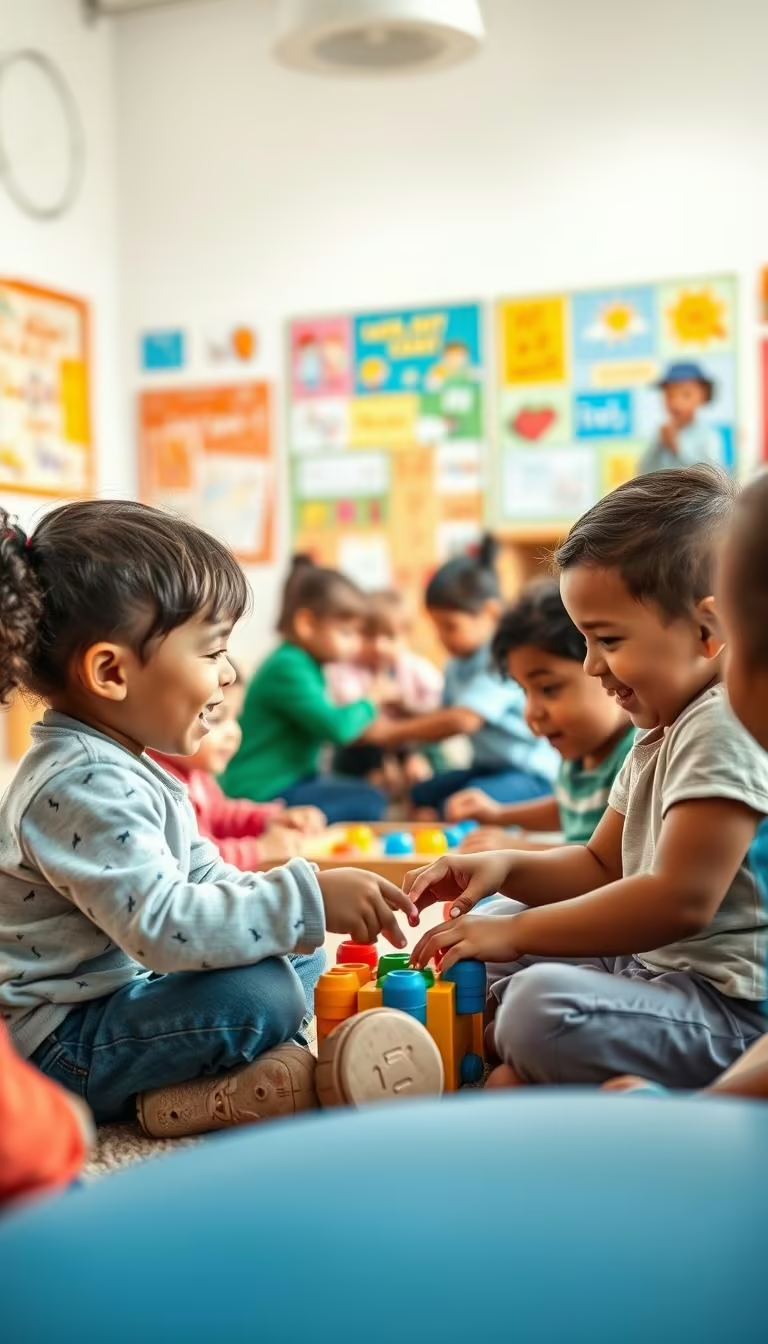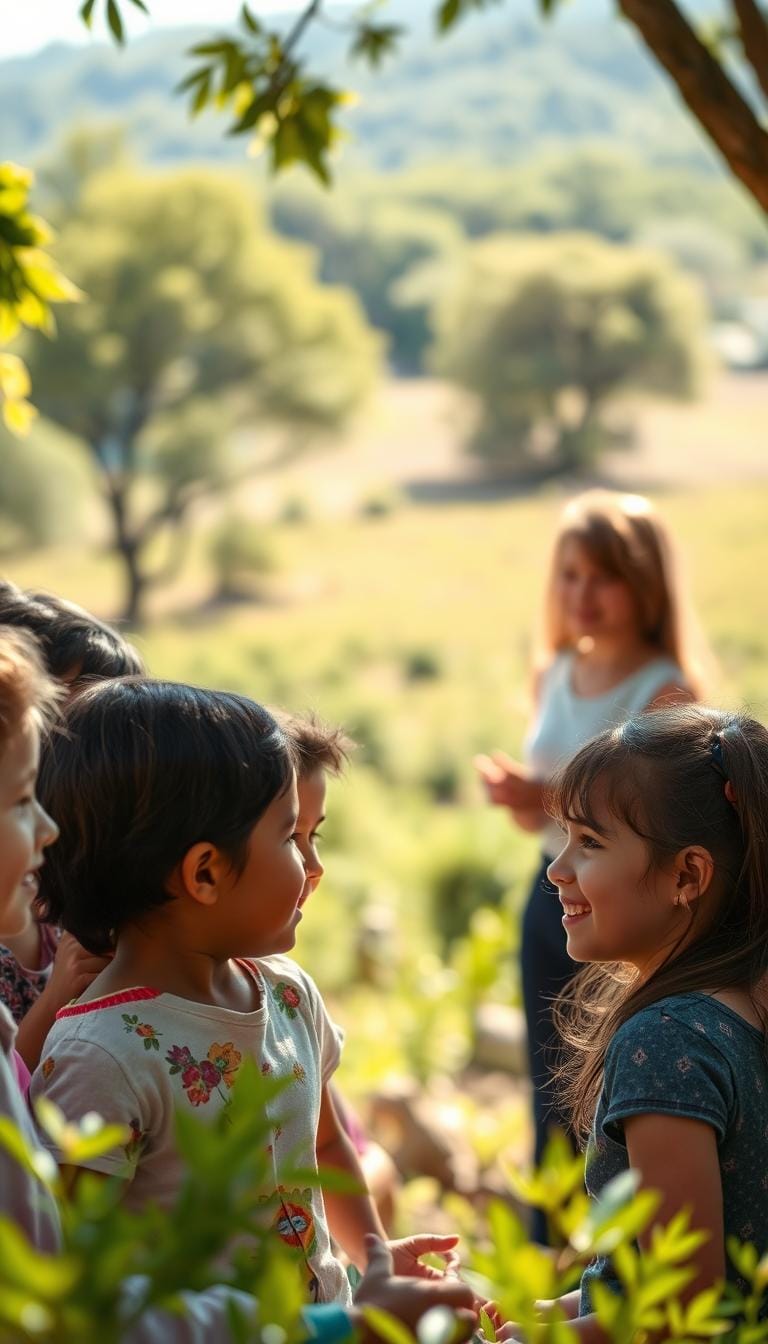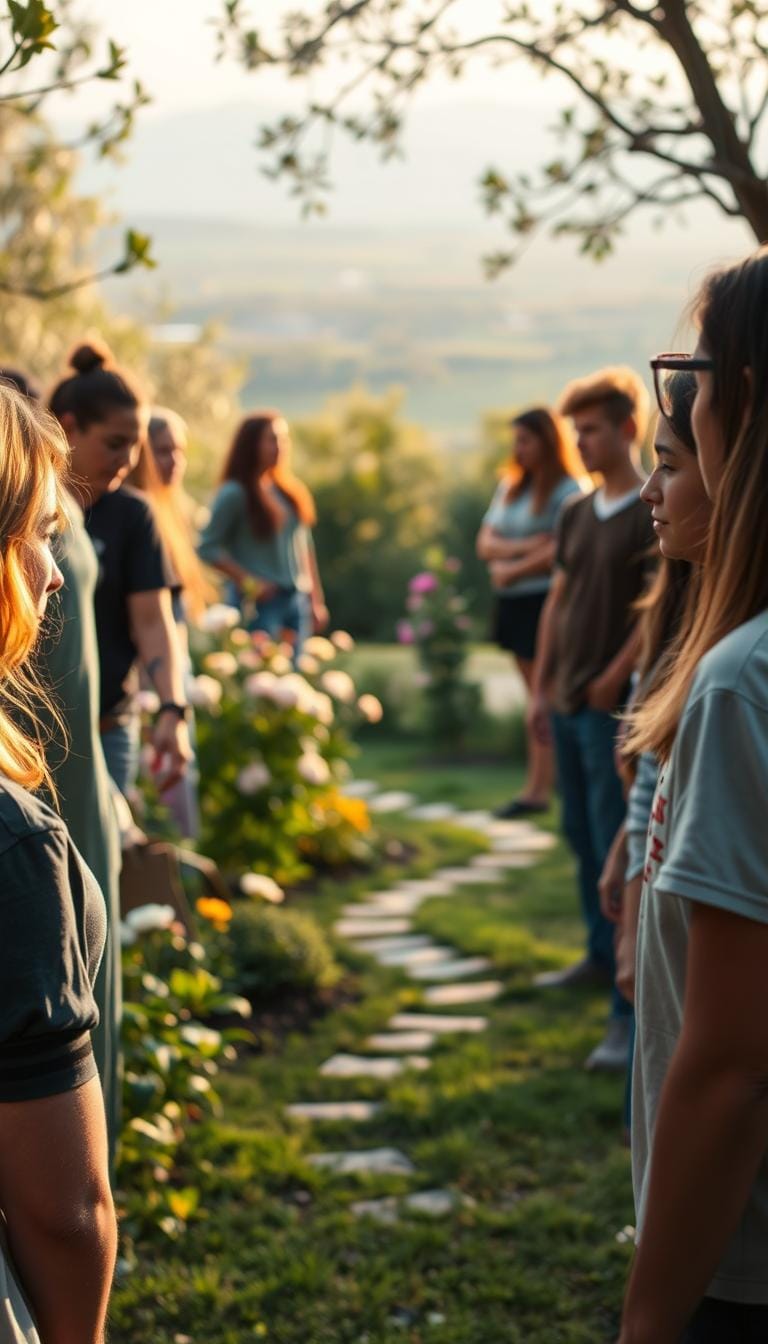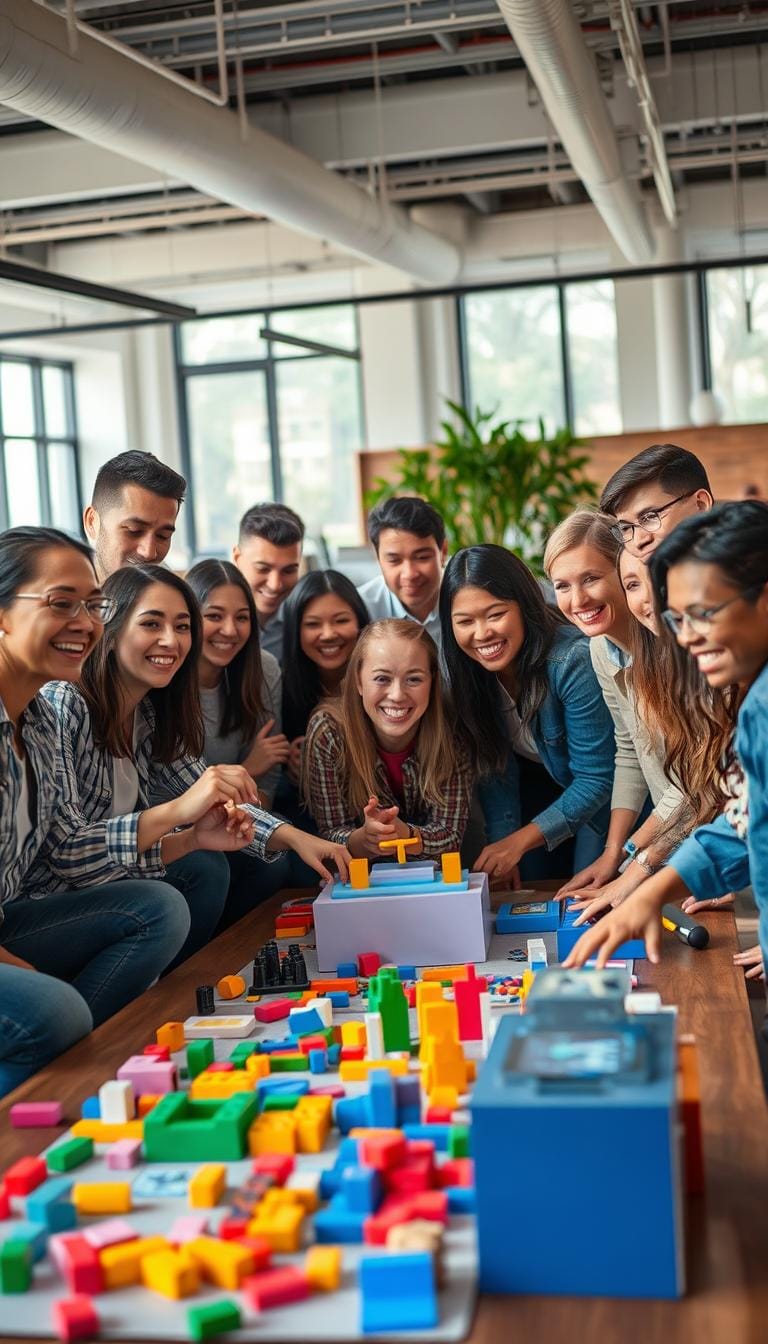How Social Interactions With Peers Can Influence Moral Development
Table of Contents
I’ve always been curious about how How Social Interactions With Peers Can Influence Moral Development. As we grow, our interactions with others greatly affect what we see as right and wrong.

Studies reveal that moral development is deeply tied to the company we keep. Our peers can either support or question our moral beliefs. This helps us develop a clearer sense of what’s ethical.
Looking into how we interact with peers can teach us a lot. It shows how these relationships mold our moral growth and guide our actions.
The Foundation of Moral Development in Children and Adolescents
It’s important to understand how moral development starts in kids and teens. This process is shaped by family, culture, and social interactions. These factors play a big role in forming their moral values.
Key Theories of Moral Development
Many theories explain how kids and teens develop morally. Two key ones are Kohlberg’s Stages of Moral Development and Gilligan’s Ethics of Care.
Kohlberg’s Stages of Moral Development
Lawrence Kohlberg said moral development goes through stages. Each stage shows a higher level of moral thinking. These stages start with following rules and end with understanding individual rights.
Gilligan’s Ethics of Care
Carol Gilligan’s theory focuses on care and compassion. She believes Kohlberg’s theory misses the importance of care and relationships in making moral choices.
The Progression from Rule-Following to Ethical Reasoning
As kids grow morally, they move from following rules to complex ethical thinking. This change is influenced by their social interactions, like those with friends.
| Theory | Key Components | Influence on Moral Development |
|---|---|---|
| Kohlberg’s Stages | Stages of moral reasoning | Emphasizes the progression of moral reasoning |
| Gilligan’s Ethics of Care | Care and compassion | Highlights the role of relationships in moral development |

Peers have a big impact on moral development. Through interactions with friends, kids see different moral views. This exposure can shape their own moral thinking.
How Social Interactions With Peers Can Influence Moral Development
Moral development is greatly shaped by our interactions with peers. As we grow, our moral compass evolves. Peer relationships play a big role in this.
Children and teens start forming their moral values early. At first, parents and caregivers lead the way. But as they get older, peers become more influential.
The Gradual Shift from Parent to Peer Influence
In early childhood, parents have the most impact. But as kids enter school age, peers start to matter more. This change is a natural part of growing up.
Peers’ influence grows as kids spend more time together. They share experiences and discuss issues. This shapes their moral values and reasoning.
Mechanisms of Peer Influence on Moral Reasoning
Peer influence affects moral reasoning in several ways. Key processes include perspective-taking, empathy development, and moral discourse. Collaborative problem-solving also plays a role.
Perspective-Taking and Empathy Development
Interacting with peers helps us see different viewpoints. It fosters empathy. This way, we refine our moral principles and become more compassionate.
For example, role-playing helps kids understand others’ perspectives. It builds empathy and cooperation.
Moral Discourse and Collaborative Problem-Solving
Talking with peers about moral issues sharpens our critical thinking. It improves our moral reasoning. Collaborative problem-solving also enhances our ability to make ethical choices.
Through these interactions, we learn to handle complex moral situations. We develop a stronger sense of justice and morality.

The table below outlines the main ways peer influence shapes moral reasoning:
| Mechanism | Description | Impact on Moral Development |
|---|---|---|
| Perspective-Taking | Considering different viewpoints | Enhances empathy and understanding |
| Moral Discourse | Discussing moral issues | Develops critical thinking and moral reasoning |
| Collaborative Problem-Solving | Working together to resolve conflicts | Fosters cooperation and ethical decision-making |
The Role of Peer Relationships in Shaping Moral Values
Peer relationships are key in shaping our moral values. The quality of these relationships and the dynamics within them greatly affect our moral reasoning and actions.
Friendship Quality and Moral Development
The quality of friendships is very important for moral growth. Friendships built on trust and reciprocity help us grow morally. Positive relationships help us develop empathy and understanding for others.
Trust and Reciprocity in Close Friendships
In close friendships, trust and reciprocity are vital for moral growth. When friends trust each other, they can have honest conversations. This leads to a better understanding of moral principles. Reciprocity also promotes fairness and cooperation.
Group Dynamics and Collective Moral Norms
Group dynamics in peer relationships also shape moral values. The moral norms of a group can affect an individual’s moral thinking and actions. Knowing how group dynamics influence moral development helps us support positive growth.
In-Group Loyalty and Out-Group Attitudes
Group dynamics can create in-group loyalty and out-group attitudes. In-group loyalty can foster belonging and cooperation. But it can also lead to excluding others. It’s important to understand how these attitudes affect moral development.
In conclusion, peer relationships are essential in shaping our moral values. By understanding the factors that influence moral development in these relationships, we can support individuals in developing positive moral principles.
Social Learning and Moral Behavior Among Peers
People learn moral values and behaviors through social interactions. Social learning theory says we get these by watching and imitating others. In peer groups, we’re shaped by those around us.
Observational Learning and Modeling of Ethical Behavior
Observational learning is key in social learning. It’s when we watch and copy others’ actions. In peer groups, seeing how others handle moral dilemmas or act kindly is important.
For example, seeing someone help another can make us more likely to do the same. This positive action can spread, making it a common behavior in the group.
Reinforcement and Feedback in Peer Groups
Reinforcement and feedback are vital in shaping moral behavior among peers. Peer groups offer a space where actions are evaluated, influencing our moral growth.
Social Rewards for Prosocial Actions
When we act kindly, like sharing, we get social rewards from our peers. These rewards, like praise or acceptance, encourage us to keep acting that way.
- Praise from peers for helping others
- Acceptance into a social group for cooperative behavior
- Inclusion in activities for demonstrating empathy
Peer Rejection as Moral Feedback
On the other hand, acting badly can lead to peer rejection. This rejection tells us our actions are wrong. It’s a strong motivator to change and fit in with the group’s moral standards.
In summary, social learning is essential in shaping moral behavior among peers. Through watching, getting rewards, and feedback, we learn and adopt moral values. Understanding these processes helps us see how important peer influence is in our moral development.
Developmental Differences in Peer Moral Influence
As people grow, how peers affect moral development changes a lot. This change happens from early childhood to young adulthood. It shows how social interactions and moral growth are connected.
Early Childhood: Emerging Moral Awareness Through Play
In early childhood, kids start to learn about right and wrong through play. They learn about fairness and kindness by playing with others. Play is key for kids to learn and practice being good, like sharing and working together.
Middle Childhood: Rule-Based Morality and Fairness
When kids get a bit older, they start to understand rules and fairness better. Playing with friends helps them see the need for justice and following rules. This is a big time for learning more about being moral.
Adolescence: Identity Formation and Moral Autonomy
In adolescence, friends really shape who they are and their moral views. Teens talk and debate with friends about what’s right and wrong.
“The formation of identity is closely tied to the moral values and principles that adolescents adopt from their peer groups.”
Teens want to be their own person, and friends are a big part of that.
Young Adulthood: Refining Moral Principles Through Diverse Relationships
In young adulthood, people keep shaping their moral views through different friends. Meeting new people helps them see things from different angles. This is when they really solidify their moral identity and apply it in life.
The way peers influence moral growth changes a lot as we get older. Knowing this helps us grow up to be better people.
Peer Pressure and Moral Decision-Making
Peer pressure can be both good and bad. It can help us grow morally or lead us to make wrong choices. The people we hang out with can really shape our decisions.
Positive Peer Pressure and Prosocial Behavior
Good peer pressure pushes us to do good things. Like helping out in the community or volunteering. When friends show us kindness, we feel more inclined to do the same.
Community Service and Volunteer Initiatives
Helping out in the community is great for our souls. It teaches us empathy and shows us the importance of helping others. Plus, it feels good to make a difference.
Negative Peer Pressure and Moral Compromise
But bad peer pressure can make us do things we shouldn’t. It can make us take risks or act unethically. This can hurt our moral compass.
Risk-Taking Behavior and Moral Disengagement
When we take risks because of bad peer pressure, we might start to justify our actions. This is called moral disengagement. It’s when we start to see our wrongdoings as okay.
Building Resilience Against Harmful Peer Influence
It’s important to resist bad peer pressure. We need to know ourselves, think critically, and surround ourselves with positive people. This helps us stay true to our values.
Understanding peer pressure helps us make better choices. It lets us navigate our social world with integrity. And that’s key to living a good life.
Digital Interactions and Online Peer Influence
Social media and online communities have changed how we influence each other. They play a big role in shaping our moral identities. It’s important to see how online interactions shape our moral values.
Social Media and Moral Identity Formation
Social media is key in forming and showing our moral values. Online, we meet different views that shape our moral thinking.
Performative Morality and Virtue Signaling
The online world pushes for performative morality. People show off their moral values to get approval. This can make morality seem fake, not real.
“The online disinhibition effect can lead to a decrease in moral restraint, as individuals feel more comfortable expressing themselves online than they would in person.”
Cyberbullying and Online Moral Disengagement
Cyberbullying is a big problem online. It leads to online moral disengagement. Seeing or taking part in cyberbullying can make people ignore harm, losing touch with their morals.
| Aspect | Offline Peer Influence | Online Peer Influence |
|---|---|---|
| Nature of Interaction | Face-to-face, direct | Digital, often indirect |
| Impact on Moral Development | Can be significant, through direct feedback and shared experiences | Influences moral identity through online content and community norms |
Digital Communities as Moral Reference Groups
Digital communities act as moral guides. They give people a sense of belonging and moral direction. These groups can help grow moral values by encouraging kindness.
Practical Strategies for Fostering Positive Peer Moral Influence
Looking into how peers shape moral growth is key. We need to find ways to help teens grow into good adults. A supportive setting is vital for their moral development.
Guidance for Parents and Caregivers
Parents and caregivers are very important in shaping teens’ morals. It’s important to find a balance between watching over them and supporting their friendships.
Monitoring vs. Supporting Peer Relationships
Parents often want to keep an eye on their kids’ friends. But too much watching can be bad. It’s better to support their friendships by encouraging positive ones.
- Have open talks about their friendships and values.
- Help them join groups that teach teamwork and empathy.
- Show them the kind of behavior you want them to have with friends.
Approaches for Educators and School Systems
Schools can also shape moral growth through special programs and lessons.
Cooperative Learning and Peer Mediation Programs
Using cooperative learning and peer mediation can really help students grow morally.
- Cooperative learning builds teamwork and respect.
- Peer mediation teaches how to solve conflicts.
Community-Based Interventions That Leverage Peer Dynamics
Community programs are also important for moral growth. They help teens learn responsibility and empathy through service and leadership.
Key strategies include:
- Start community service projects that teens can join together.
- Give teens chances to lead and take moral responsibility.
By using these methods, we can create a place where teens can grow morally. This helps them become well-rounded individuals.
Conclusion: The Lifelong Impact of Peer Relationships on Moral Growth
Peer relationships are key in shaping moral development at all life stages. From childhood to young adulthood, peers greatly influence our moral values and actions. This shows how vital positive peer connections are for growing morally.
Learning and growing morally go hand in hand with peer interactions. Peers shape our moral thinking and actions through shared experiences and feedback. As we grow, peers continue to play a big role in shaping our moral compass.
It’s important to know how peers shape our moral growth. By supporting good peer relationships, we help people develop strong moral values. This lifelong effect shows why we should always support positive peer interactions. It helps build a more caring and morally sound society.
FAQ
How do social interactions with peers influence moral development?
Talking and hanging out with friends helps shape our moral values. It helps us understand others, feel empathy, and discuss right and wrong.
What is the impact of peer relationships on moral growth?
Friends greatly influence our moral growth. They teach us through example, support our choices, and give us feedback.
How do different developmental stages affect peer moral influence?
As we grow, peers play a bigger role in shaping our morals. In childhood, we learn through play. In middle childhood, we start to follow rules. And in adolescence and young adulthood, we figure out who we are and what we believe.
Can peer pressure have a positive impact on moral decision-making?
Yes, good peer pressure can encourage us to do good things. For example, joining community service or volunteering can teach us about helping others.
How can parents and caregivers support positive peer moral influence?
Parents and caregivers can help by watching over friendships and encouraging teamwork. They can also support programs that use friends to teach good values.
What role do digital interactions play in shaping moral identity?
Online interactions, like on social media, can shape our morals. They can teach us to act virtuously. But, they also have dangers like cyberbullying.
How can educators and school systems foster positive peer moral influence?
Schools can help by using group work and peer mediation. These methods teach us to work together, understand each other, and discuss important issues.
What is the significance of social learning in moral development?
Learning from others is key to growing morally. It lets us see good behavior, get support, and learn from our mistakes.






